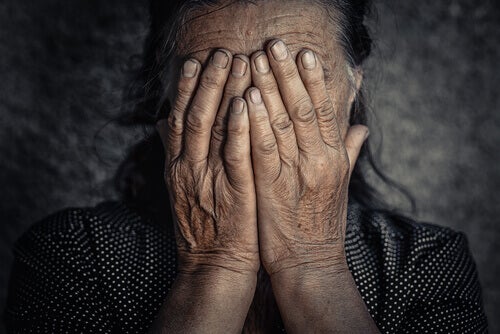It seems hard not to relate the pain to the fact that we feel emotionally ill, don’t we, who has never hit the knee with the edge of a table and been angry with it?In addition to shame, we can also feel sad and anxious.
Now imagine that pain is not transient, but is present most of the time. It’s not hard to assume the associated emotional discomfort, is it?The case is that there are countless studies on the influence of psychological factors on chronic factors. So is emotional discomfort caused by chronic pain or is it the other way around?
- “The greatest pain in the world is not the one that kills suddenly.
- But the one who.
- Dripping.
- Penetrates the soul and the breeze.
- -Francisco Villaespesa-.
The point is that, although we know that chronic pain and negative emotions are linked, it is complex to define, in a concrete way, what this relationship consists of, we do not know exactly how emotions influence the onset and increase of pain. just as we don’t know the role pain plays in negative emotions.
On the other hand, chronic pain involves high levels of disability, so those with disabilities have their lives severely affected, this is also related to the emotional discomfort that usually occurs in these people, in fact, this loss of functional capacity can lead to high levels of sadness.
“A pain that is not relieved by tears can make other organs cry. -Francis J. Braceland-
The incidence of depression has been found to be higher in patients with chronic pain than in the general population, but not only that, sadness also predicts an increase in pain, specifically, these emotions have proven to be the most potent indicators of pain in rheumatoid arthritis.
Chronic pain is not only associated with sadness or depression, it is also linked to anxiety and anger; in terms of anxiety, we have seen that people with chronic pain are more anxious; In addition, anxiety disorders are more important in the population with pain than in those without chronic pain.
Like sadness, there were signs that feelings of anxiety influence the experience of chronic pain, high levels of anxiety over time make us vulnerable to frequent episodes of pain, but not only that, it also aggravates the pains that were already there. is more pronounced and sustained in patients with higher levels of anxiety.
Sensitivity to anxiety also plays a role. That is, the fear of anxiety symptoms, associated with the belief that they will have negative consequences for us, a factor that influences both the appearance and the maintenance of chronic pain.
“Give the word to pain: pain that does not speak, moans in the heart until it is broken. –William Shakespeare–
The role of emotion and anger in physical health has been studied several times, in fact, it has been shown that their experience and expression contribute to the development and evolution of various psychosomatic diseases, such as heart disease and cancer.
With regard to chronic pain, the results indicate that people with these problems have higher levels of anger and hostility than the rest of the population, and the internal expression of anger has been found to be higher than in other people With this we mean that these people have problems that they do not express from the outside , but manifest themselves in their internal dialogues through negative thoughts, which does not leave them thinking.
In addition, it has been observed that patients with chronic pain who tend to express their anger in this way, rather than extinguishing it (external anger) or controlling it more appropriately (anger control), have lower levels of very painful. However, it is also harmful to express anger abroad, as the person who does so may be affected in their interpersonal relationships, which can reduce their social support, a key element in solving this problem.
Therefore, it is extremely relevant to intervene psychologically in patients suffering from chronic pain, good anger management, as well as strategies to control anxiety and sadness, not only will they bring greater psychological well-being, but will also help reduce pain.
Images courtesy of Cristian Newman and Ryan McGuire.

